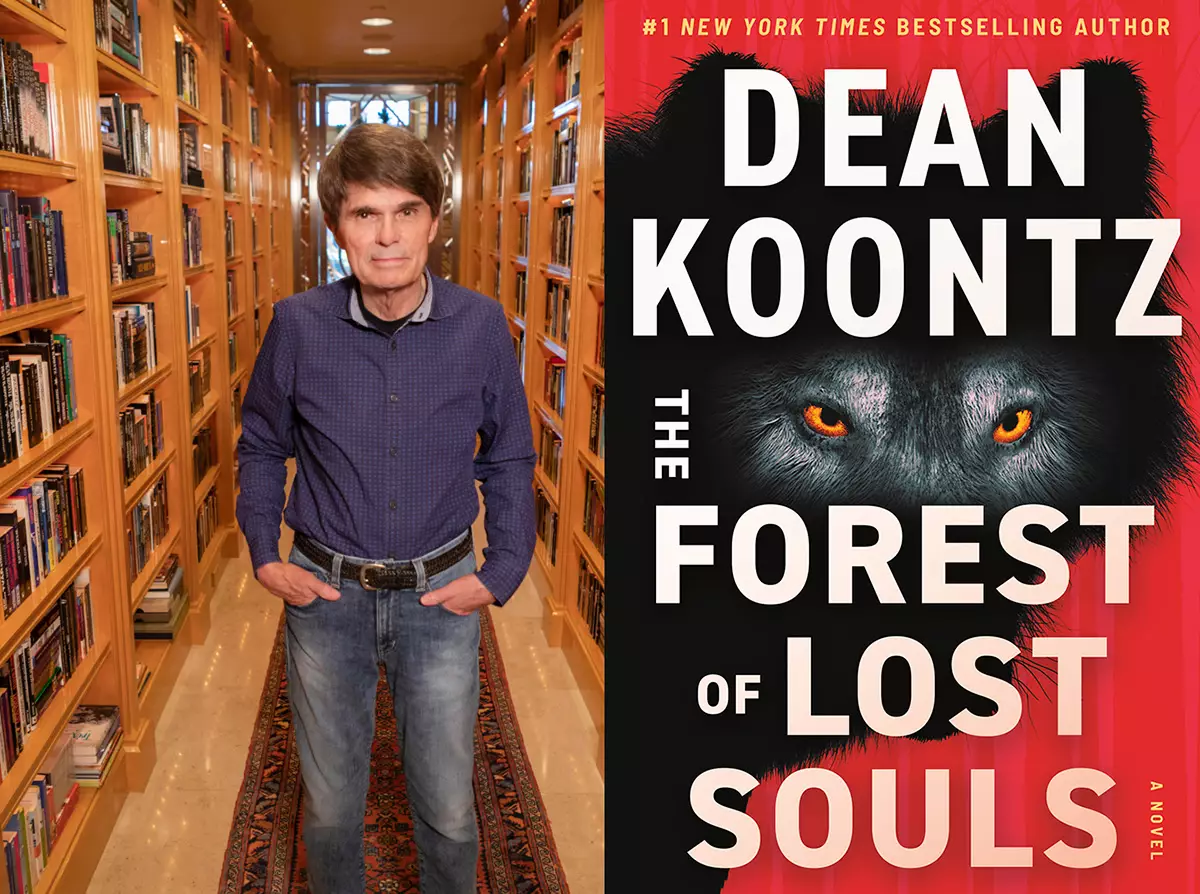In Dean Koontz’s latest supernatural thriller, *The Forest Of Lost Souls*, we are introduced to Vida, a young woman whose upbringing in the wilderness has bestowed upon her a profound connection to nature and its creatures, particularly wolves. Koontz deftly constructs a narrative that blends elements of the paranormal with a stark critique of societal corruption, illustrating not only the power of individual agency but also the resilience required to confront institutional malevolence. Through Vida, he challenges the notion of whether personal peace is attainable in a world filled with shadowy figures who wish harm upon the innocent.
Kettleton County, the setting steeped in both literal and metaphorical darkness, serves as an emblem of unchecked corruption. The landscape is not merely a backdrop; it embodies a character of its own – one that permeates the thoughts and actions of those within it. Vida grapples with the haunting legacy left by Jose Nochelobo, a local hero whose tragic death sparks questions of conspiracy and foul play. Koontz cleverly wields the medium of a small-town environment, which often appears idyllic but conceals deeply rooted evils. The juxtaposition of Vida’s idyllic wilderness against the ominous political atmosphere in Kettleton serves to heighten the novel’s stakes.
Central to the text is Vida’s extraordinary bond with the natural world, particularly her relationship with the wolves. This connection is not merely sentimental; it symbolizes her intrinsic strength and wild spirit. The forest, filled with formidable wonders, becomes both a sanctuary and a battleground for her as she seeks to uncover the truth behind Jose’s death. As Koontz explores the theme of humanity’s disconnection from nature, he illustrates how Vida’s innate affinity gives her the unique tools necessary to combat the nefarious forces at play. In contrast, the men of power depicted in Kettleton exhibit a distinct alienation, driven by selfish motives that ultimately lead to their own downfall.
The narrative resonates with deeper philosophical inquiries, particularly regarding human nature and morality. Koontz references a poignant quote from philosopher Eric Hoffer that suggests societal movements often devolve into exploitative practices. This notion resonates throughout *The Forest Of Lost Souls*, as characters embody the tension between authenticity and corruption. Koontz’s reflections also touch upon the phenomenon of nihilism within literature and society, warning against the dangers of perspectives that dismiss human exceptionalism. Unlike many literary contemporaries, Koontz embraces the complexity of human emotions, portraying how courage and conviction can drive narratives toward hope rather than despair.
In crafting Vida, Koontz creates a multifaceted female character who embodies resilience and intelligence. Unlike conventional portrayals of female protagonists who often depend on external forces for their agency, Vida draws her strength from her deep understanding of the natural world. This deviation is not just refreshing but vital in a genre often criticized for lacking robust female representations. Koontz’s development of Vida speaks volumes about the potential for women to reclaim power in narratives traditionally dominated by male figures by showcasing her unique relationship with nature as not just a survival tactic, but a profound source of wisdom.
At its core, *The Forest Of Lost Souls* serves as a cautionary tale about the dangers of complacency in the face of evil. The power dynamics within Kettleton County highlight how ignorance can allow corruption to flourish unchecked. Vida’s battle is not just against the physical manifestation of evil but is also a metaphor for the human struggle against apathy. The suspense continually builds as Vida becomes increasingly aware of the sinister forces conspiring against her, embodying the battle between light and darkness that is central to much of Koontz’s writing.
Through *The Forest Of Lost Souls*, Dean Koontz invites readers on a gripping journey that intertwines the mystical with the moral. As Vida navigates the treacherous landscape of Kettleton County, she not only seeks to uncover the truth but also embodies the intrinsic fight for justice and order amid chaos. As Koontz hints at future explorations of human resilience and societal change, readers can anticipate a continuation of this thematic richness in his forthcoming works. This novel serves not only as a thrilling narrative but also as a reflection on the pressing issues facing humanity today, making it a poignant addition to Koontz’s illustrious career.

